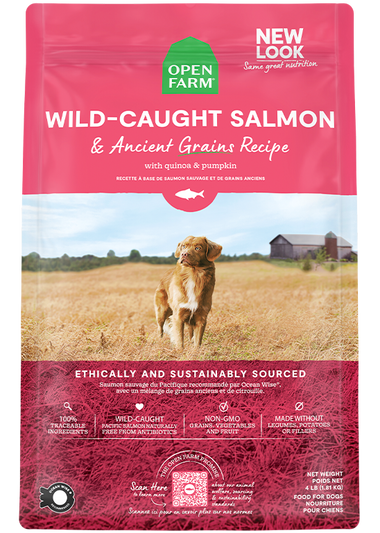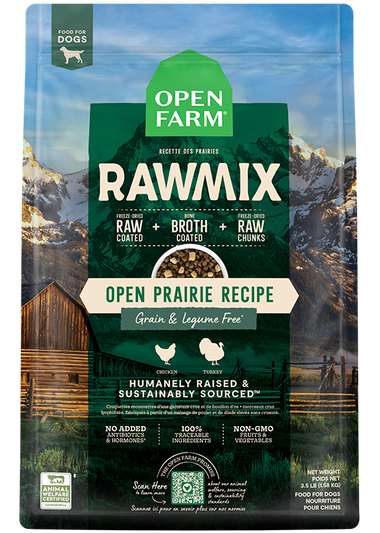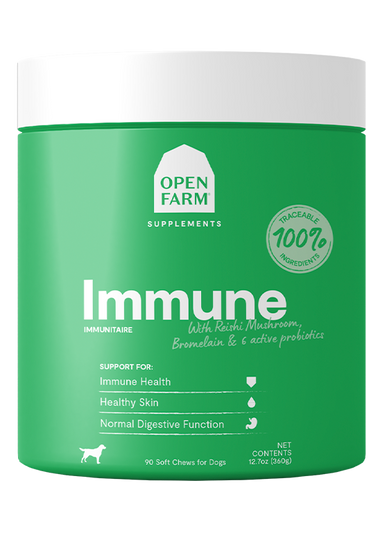All pet parents want to give their pups a healthy diet, but the dog food market is saturated with different foods and supplements, many of which don’t provide your pet with the nutrients they need. One of the central debates when it comes to dog food is grain-free vs. grain dog food. Grain dog food contains grains like wheat, barley, oats, millet or sorghum, while grain-free dog foods specifically avoid these ingredients.
Luckily, both types of food can be good for your dog, providing the nutrition your dog needs to live a long, active life. Though both are great options, they are different and offer distinct advantages. Here is a breakdown to help you better understand which type of food might be best for your pup.
Grain-Free Dog Food
Grain-free dog foods do not contain many staple grains that normally make up dog food. When grain-free dog food was introduced to the market, it was an immediate hit with pet parents. They felt that the grains could cause various issues their dog had, from patchy coats to joint pain to more serious dietary issues, not unlike problems associated with gluten intolerance in humans.
While the tidal wave of pet parents shifting to grain-free foods has ebbed somewhat, they are still an excellent choice for feeding your dog. Grain-free dog food offers all the nutrients that normal dog food has, including omega-3 fatty acids, amino acids, iron and calcium and is also high in protein and dietary fiber.
Some dogs have adverse reactions to certain grains and are more active and happy on grain-free diets. Open Farm offers a wide range of grain-free dog foods with ingredients as diverse as russet potatoes, whitefish, venison and field peas to give your dog the nutrition it needs while avoiding grains.
Ancient Grain Dog Food
Traditionally dry dog food was grain-heavy to add fiber and bulk to your dog’s diet. However, some dogs are grain-intolerant and foods containing grains can cause digestive distress and inflammation. But for dogs that can digest grains, grain dog food is a healthy, nutritious option. Not all grain foods are created alike, though and it is important to be careful about which grains your dog eats.
Ancient grains are grains that were some of the first grain species humans domesticated, like millet, oats, sorghum and chia seeds. These more hearty and nutritious grains are packed full of the vitamins and minerals your dog needs. Choosing these ancient grains dog food gives pet parents the best kind of grain dog food for their pups.
Open Farm offers several types of ancient grain dog foods for every kind of dog. Ingredients like wild-caught salmon, lamb and turkey are mixed with coconut, pumpkin, apples and ancient grains. These give your dog ample protein, dietary fiber, zinc, iron, manganese and amino and omega-3 fatty acids.
What’s Best for Your Dog?
Every dog is different and their favorite food will be different too. Some dogs have special dietary requirements and need special food for dogs with allergies. These dog foods eliminate many allergenic ingredients, like corn, wheat and soy, that dogs commonly have issues with but still pack the nutritious punch your dog needs to be active, playful and healthy.
Many dogs at different stages of life need extra vitamins and minerals to be their best, playful selves. Open Farm offers dog supplements for pups that need a little extra boost. These delicious treats can be a fun reward for your dog while also helping them live a longer, healthier life.

Support Your Pet’s Health With Open Farm
Choosing the right dog food can be difficult and it is always a good idea to talk any decision over with your vet and of course, give your dog different foods to try. They’ll let you know what they love. Contact Open Farm today to find your dog’s new favorite food and treats.








































 Sign In
Sign In
 Create Account
Create Account















